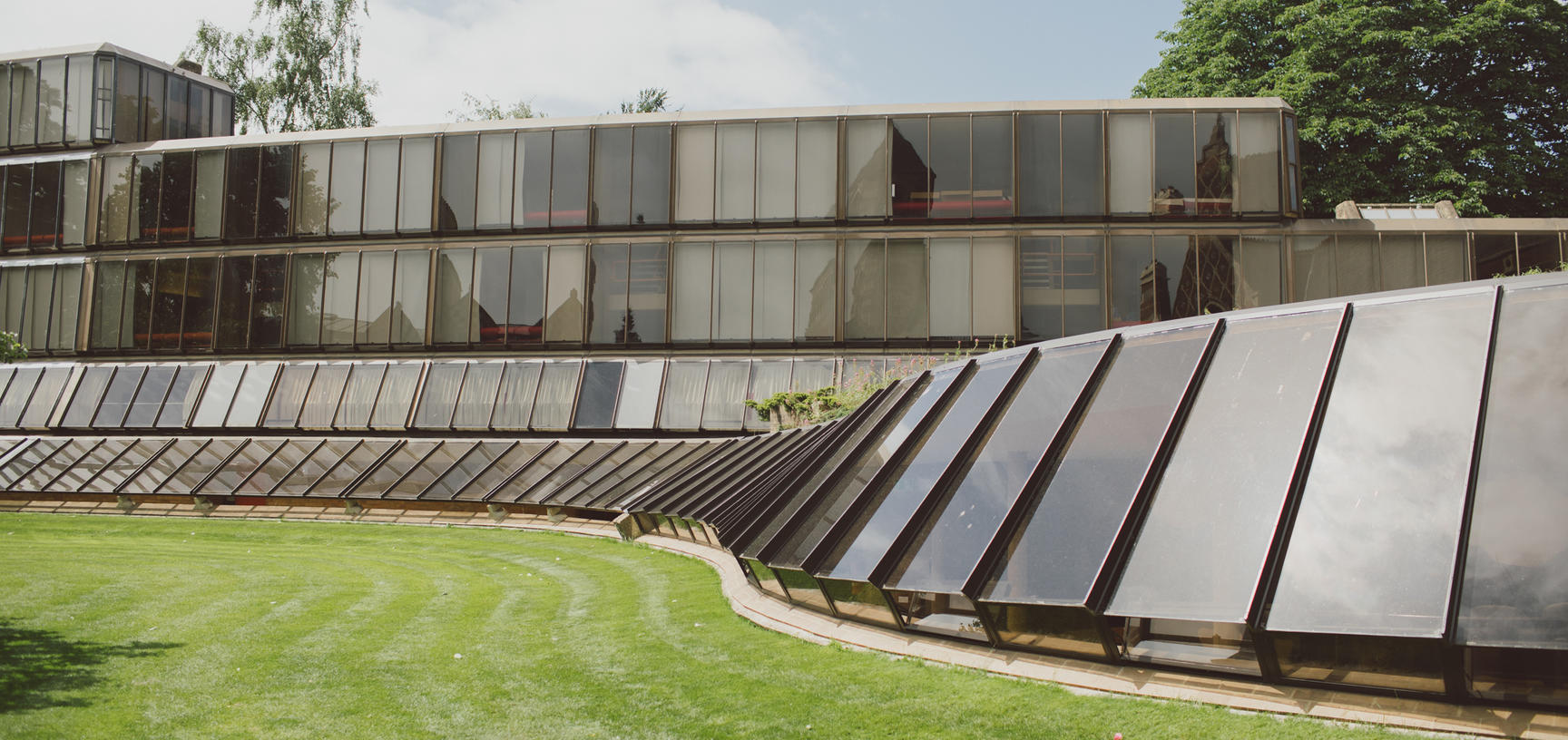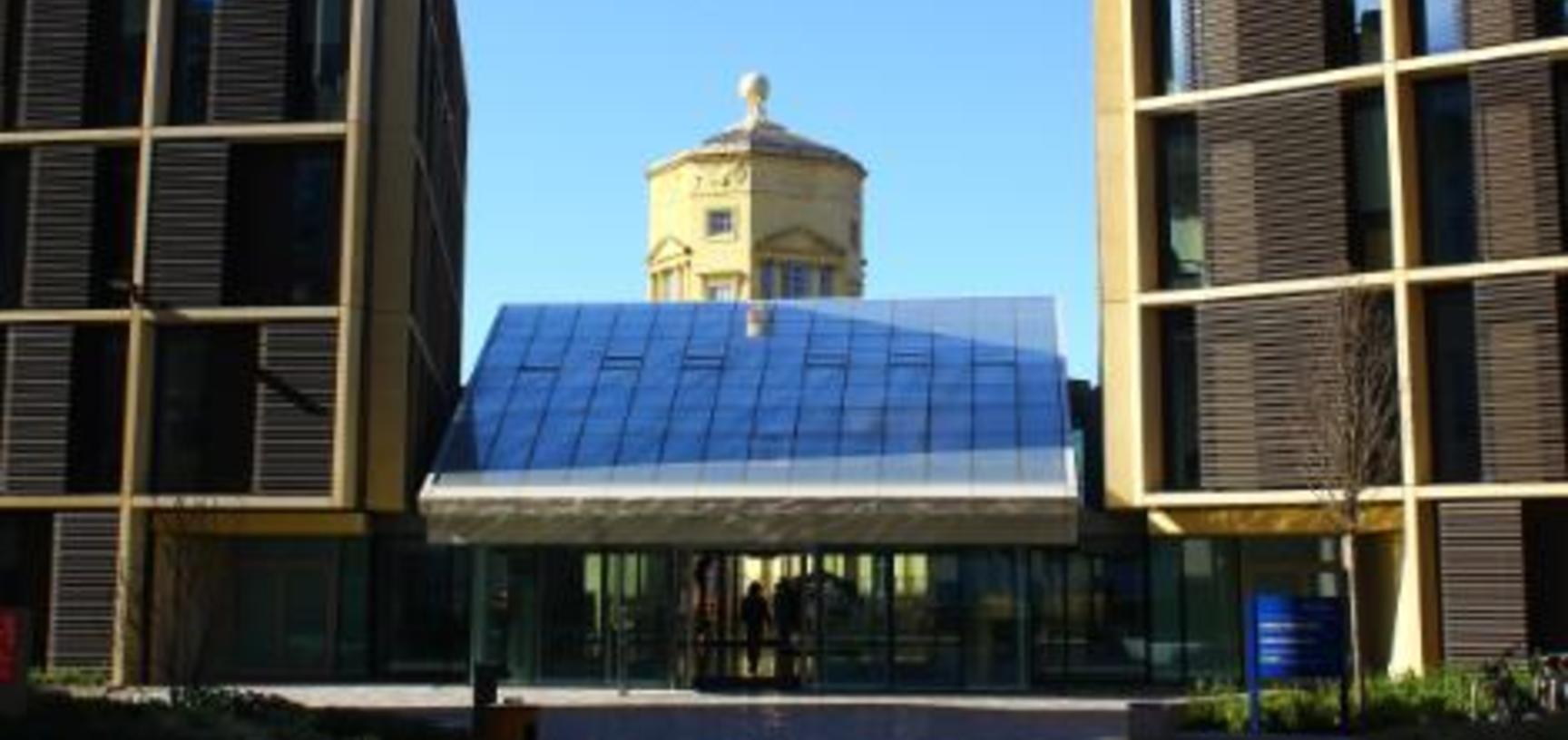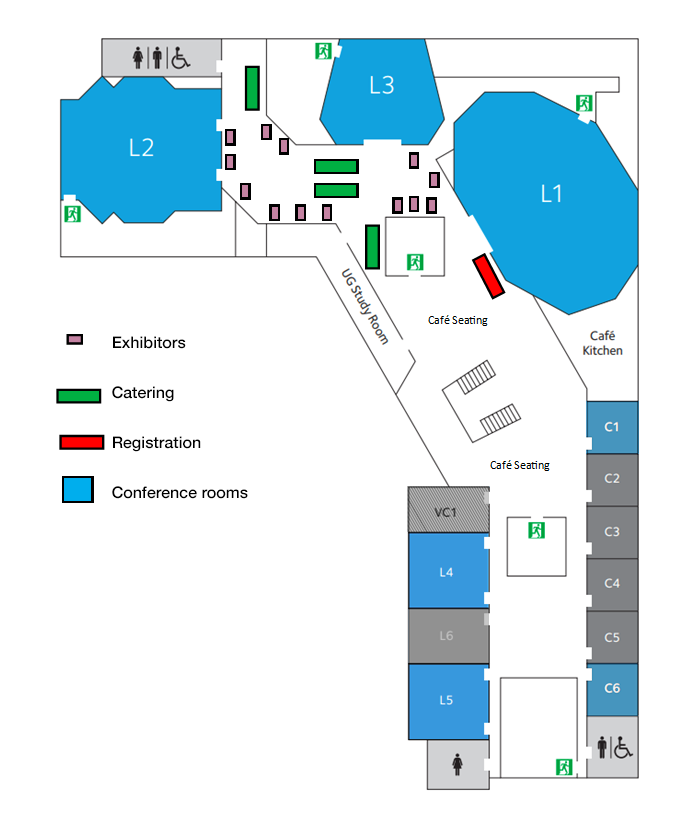ICTF Conference 2023
For this year's Conference we will be streaming the Plenary Sessions and the Breakout Sessions for virtual
attendance for those whom are unable to attend in person, booking will be required to receive the streaming links.
Please note the Conference booking is now closed.
Agenda
| Start | End | Description |
|---|---|---|
| 08:30 | 09:15 | Registration, Pastries and Tea/Coffee |
| 09:15 | 09:30 | Welcome and Introduction |
| 09:30 | 10:20 | Plenary 1 - The Surface Area of Software - A brief history of Design in software, reflecting on the history of the design patterns movement, clean code, and the long shadow they have cast over software development in the 2010s and beyond. |
| 10:20 | 10:25 | Travel to Breakout |
| 10:30 | 11:10 | Breakout Session A |
| 11:10 | 11:30 | Tea/Coffee Break |
| 11:35 | 12:25 | Plenary 2 - Equality, Diversity and Inclusion in IT Industry - Change is hard. Bias is often sub conscious. What can we do in the IT industry to lead the way to better DEI? With a backdrop of living in an increasingly automated world where technology touches almost everything we do, this talk will explore why diversity, equity and inclusion are so important in our industry, and the part we can play in its success. |
| 12:25 | 13:20 | Lunch - Networking Suppliers and Colleagues |
| 13:20 | 14:00 | Breakout Session B |
| 14:00 | 14:05 | Travel to Plenary |
| 14:10 | 15:00 | Plenary 3 - Delivering a Seamless digital student journey - This is a world-class technology services organisation that partners with the faculties, students, staff and alumni to advance research, science, engineering, medicine and business in support of the College’s mission to deliver benefits to society. |
| 15:00 | 15:25 | Tea/Coffee Break |
| 15:30 | 16:20 | Plenary 4 - Digital Transformation Project |
| 16:20 | 16:30 | Conference Close and Thanks |
| 16:30 | 16:45 | Head to Keble College, Hayward Quad for Evening Barbeque |
David is the founder of Electric Head Software and the Head of Architecture for NewDay, based in London focusing on software delivery, developer mentoring and cultural change.
Having previously served as the Technical Architect for JustGiving and helped market-leading organizations such as JUST-EAT, Trainline, Euromoney, Gfk and Vodafone improve their technical capabilities and culture across a variety of principal engineering and senior leadership roles. As a result of his community work, David is a Microsoft MVP in Developer Technologies.
David is also the best-selling author of the book "Get Coding!" - a children's programming book available worldwide, and its successor Get Coding 2! - covering videogame programming for 9-14 year olds.
There's a chance you've seen him talk at a spread of conferences, user groups and code-dojos around the UK over the last decade or indulged in bar-room programming debates after one.
You can find his open source projects on NuGet, npm and GitHub, follow him on Twitter @david_whitney, or check out his technical blog at http://www.davidwhitney.co.uk/Blog
Tracy was voted PCR’S Woman of the Year 2016 and one of the top 50 women in technology in 2014 and 2015. She was awarded CompTIA’s Member of the Year in March 2017, and voted in as Chairwoman of the Board of CompTIA in May 2021. She is passionate about diversity and raising the bar in professionalism and skills with tech professionals.
Tracy has over 38 years’ experience working in tech and has successfully implemented business systems and training programmes across many different industries from service and professional sectors through to retail, education and manufacturing.
She has taken part in several Chamber of Commerce initiatives to deliver free IT advice to SME’s, has been a part of the Staffordshire Online Fraud Forum, and was one of the authors of a business standard for IT companies called Accredit UK that was run by Advantage West Midlands under ERDF funding.
An active member of the global tech trade association CompTIA, Tracy is a member of the Education Faculty delivering training, webinars and talks for CompTIA members around the world. In 2015 Tracy joined the CompTIA Board of Directors, after previously being part of the UK Executive Council, and was voted Community Member of the Year in 2019. CompTIA is a global not for profit trade association with annual revenues in excess of $140 million. Her duties as a Board director have included chairing the Governance Committee and the Audit, Finance and Investment Committee before taking over as Chairwoman of the Board. Tracy is also a member of the Executive Committee, overseeing the composition and structure of the Board.
She founded Maximity, an IT training and consulting business specializing in end user education and awareness, in 2000 and co-founded Prizm Solutions, an insurance brokerage, with her husband in 2006.Tracy is a director of Tamworth is Open CIC founded to help regenerate the local town and economy and also sits on the Advisory Board for Channel Futures, a US based media and events platform providing information, perspective and community for the global tech channel ecosystem.
Tracy is a member of the Chartered Management Institute, a Fellow of the Institute of Consulting, a PRINCE 2 practitioner and a member of the FSB and Chamber of Commerce.
Before Imperial Juan served as the Chief Technology Officer at the Department for Work and Pensions and BT Sport, he was a Senior Manager at Accenture in the Communications and High-Tech part of the business.
His qualifications include a BSc (Hons) in Applied Computing, an MSc in Information Technology Security, an Executive MBA from Imperial College London and an MPLA from the Said Business School (University of Oxford).
Delivering a seamless digital student journey: Juan leads the College's Information and Communications Technology function. This is a world-class technology services organisation that partners with the faculties, students, staff and alumni to advance research, science, engineering, medicine and business in support of the College’s mission to deliver benefits to society.
Juan leads and supports: enterprise business applications, collaboration technology, data infrastructure, business intelligence, network engineering, telecommunications, web services, client services, research computing, cyber security and the Technology Office. He sets the ICT Strategy and implements the business plan to ensure ICT is part of the fabric of the College and enabling the ambitions of the College.
Anne Trefethen is a Pro-Vice-Chancellor, Professor of Scientific Computing and Fellow of St Cross College at the University of Oxford.
She is the Pro-Vice-Chancellor responsible for the People and Digital Strategies of the University. She chairs the STFC e-Infrastructure Advisory Group. Prior to becoming a Pro-Vice Chancellor she was appointed as the University’s first Chief Information Officer in March 2012. Anne joined the University in 2005 to lead the development of the Oxford e-Research Centre where she served as the Director for over 6 years. Her research has been focused on high-performance numerical algorithms and large-scale scientific applications. She has contributed to the fields of parallel numerical algorithms, software design and engineering and most recently to energy-aware algorithms. In 2001 she became the Deputy Director of the UK e-Science Core Programme working with the Research Councils and DTI (now Innovate UK). She has spent ten years in the US at Thinking Machines Inc. and as Associate Director at the Theory Centre, Cornell University.
Breakout Session A
Presented by Kevin Elliott
10 tools for great business writing. Writing Skills - This session is your chance to learn:
6 tools to help you write clearly.
3 writing mistakes to avoid.
One bonus tip to help everyone.
If you write at work you’ll benefit from this session, and you’ll be entertained too.
Presented by Peter Micklem
What is DigiSafe?
The University of Oxford DigiSafe service has been set up to meet the need for secure long-term archiving of digital material. DigiSafe provides a storage solution for off-site archiving of material originating from different constituents across the University (e.g. college archives, departmental offices, research units).
DigiSafe offers a secure system for long-term preservation of digital objects that is easy to use, flexible, and affordable. The main features of the service are:
Short or long-term archiving (10+ years)
Secure lifecycle from upload to long-term storage
Simple upload/download facility (‘drag-and-drop’) as well as other methods for secure transfer
Easy access to archived files, with built-in viewers for exploring material directly on the platform
Granular access permission settings
Simple workflows for non-archival specialists as well as advanced functions for professional archival use
Scalable and flexible to fit the needs of different departments.
Presented by Andrew Orchard
Andrew has worked in multiple sectors during his career including games, publishing, amateur dramatics, and service providers. This session will share his learnings from small business and enterprise environments and how they are being applied to the University of Oxford environment. Highlighting the rebuilding of the department, automation, and application of cloud services with a focus on cyber security.”
Presented by Rashik Parmar
Responsible Digitization- Navigating the Next Wave with AI: Why the time is right for responsible computing with the BCS.
As the IT industry matures and embarks on the next wave of digitisation harnessing the latent potential of AI, Robotics and Quantum, the opportunity to make a step change in professionalism and responsibility is now. Addressing the climate crisis and digital divide at the at the same time is was any responsible computing industry would want to do. Yet we still hear stories of inappropriate uses of the current digital platforms that are the unintended consequences that the industry needs to address. The BCS is a leading member of the responsible computing movement and has been championing the need for competent, ethical, accountable and inclusive professionals. The talk will unpack the opportunity ahead, why this is the right time for this to be realised and explain the strategies that the BCS is now pursing.
Looking at things like tech for good, AI capabilities re social media and data breache
Presented by Michael Schlichtkrull and Rami Aly
Fake news and misinformation, hate speech and propaganda are all on the rise. To combat them, we need reliable ways to check the truth of what we are being told.
Researchers from the University of Cambridge are developing state-of-the-art software to automatically verify claims made in text – e.g. on Wikipedia pages or in politician’s speeches. They’re working to understand how artificial intelligence needs to reason in order to find the evidence to support, or debunk, the claims that are made to us.
In this workshop you can meet the research team, hear about their work, watch a live demo of them checking facts – eg about the changes in cannabis consumption in California following legalisation of the drug.
Presented by Darren Collins
Chromebooks have all of the characteristics of the ideal examination device: long battery life, very secure, touch screen equipped, and admin have the ability to manage and monitor all of the devices from a single console remotely. Join this session to learn how Oxford went from written to typed-exams at scale.
Presented by Isabel Fischer
Automatic Essay Scoring (AES) is of increasing importance.
As part of this talk Isabel Fischer will talk about the challenges and risks of AES and will provide an overview of an in-house developed AI-based formative feedback tool for students’ essays and dissertations. The tool uses a mixture of rule-based statistical features and deep-learning algorithms and databases (e.g., Pytorch, Hugging face framework, and Transformer). In the presentation Isabel will also explain the challenges around the student-facing user-interface and will discuss feedback provided on the tool by students and staff, with an emphasis on the difference of perceptions of students and staff.
Presented by Ronald Haynes
Building on the global use of IIIF (International Image Interoperability Framework) for GLAM, digital libraries and cultural heritage collections of 2D and increasingly Audio/Video (A/V) data, work is progressing to draft similar standards for 3D content. The IIIF 3D Technical Specifcation Group (TSG) is engaging with specialists and representatives across user communities, international and standards bodies, to extend IIIF into the 3rd dimension. The group aims to support incorporation of 2D and A/V with 3D data, to enable digital dioramas, scene and soundscape reconstructions, and the potential to build inclusive metaverse(s). Ronald Haynes (Cambridge UIS, IIIF 3D) will provide an update on the work of the IIIF 3D TSG (with Oxford, Cambridge, and Edinburgh representation - https://iiif.io/community/groups/3d/tsg-charter), and continuing collaboration with Europeana, UNESCO World Heritage, and the ITU and IEEE Standards Association work on Metaverse standards.
Presented by Matthew Adams
Elastic <https://www.elastic.co> open tools - Elasticsearch, ELK stack, Kibana dashboard – are widely used for delivering open and collaborative cybersecurity, data analytics, and comprehensive visualisation and reporting across local and communal estates. Matthew Adams, Senior Principal Solution Architect at Elastic, will share background and HE-related use cases, including example projects with OxCERT, Edinburgh University, IoT, NASA Rover, and OmniSOC <https://omnisoc.iu.edu> shared 'security operations center' for HE/research.
Presented by Dave Smith, Nandy Milan and Alwyn Collinson
Would you like to save staff time and effort by automating routine processes? Do you use manual methods to move or reformat data? This session will explore the possibilities of using software robotics at the University, with case studies from the new Automation Competency Centre.
Dave Smith, Chief Enterprise Architect, & Alwyn Collinson, Head of the Automation & AI Competency Centre, will work through the challenges and opportunities of automation and how it can be practically applied to your business challenges.
C6 - Quiet Room available for conference attendees at ICTF Conference
This year, the ICTF conference committee has provided a Quiet Room for conference attendees who would like to take a little time out to check emails, review their notes about sessions attended, or who need a quiet space for any other reason.
Please show respect to other users of the room and do not use it to make phone calls or to hold meetings or conversations.






